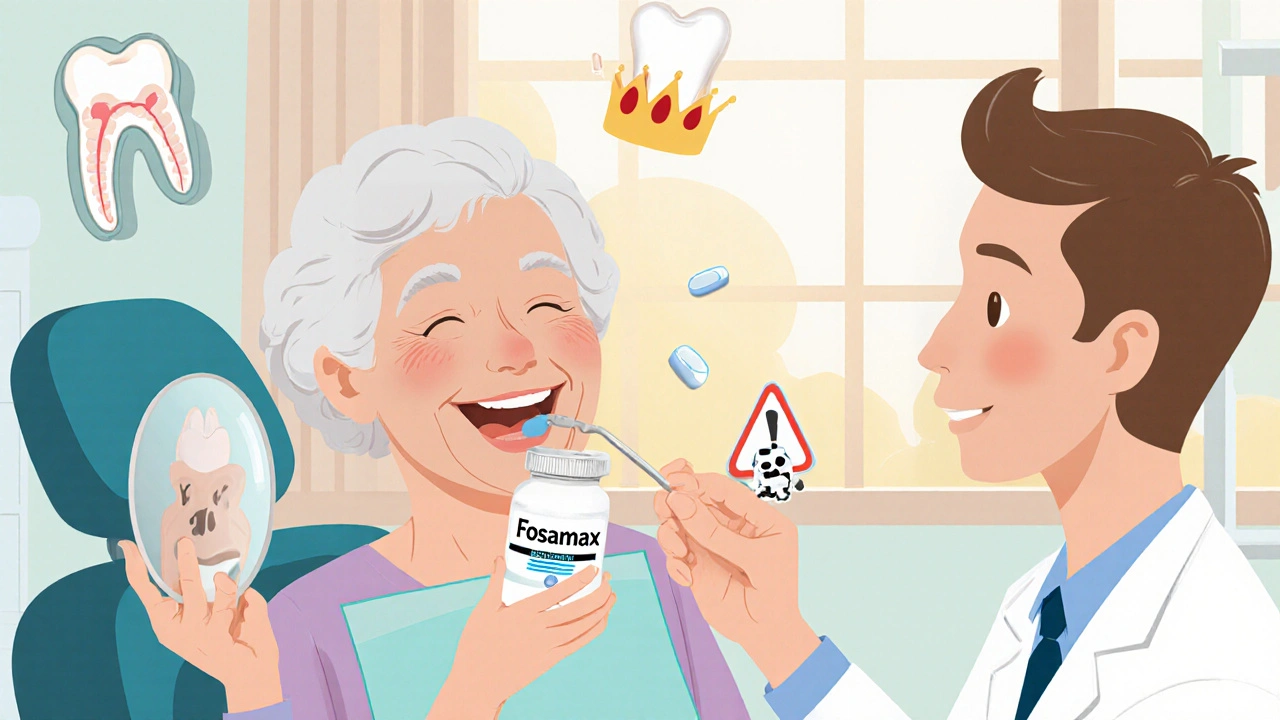Bisphosphonates: What They Are, How They Work, and What You Need to Know
When your bones start to weaken, bisphosphonates, a class of drugs designed to slow bone loss by targeting cells that break down bone tissue. Also known as bone resorption inhibitors, they’re one of the most prescribed treatments for osteoporosis worldwide. These aren’t magic pills—they don’t rebuild bone, but they stop it from crumbling too fast. That’s enough to lower fracture risk, especially in older adults and people with conditions like osteoporosis or bone metastases.
Bisphosphonates work by sticking to bone surfaces and quieting down the cells called osteoclasts that chew away at bone. Think of it like putting a brake on a demolition crew. This gives the bone-building cells (osteoblasts) a chance to catch up. The result? Slower bone loss, higher bone density, and fewer breaks. Common types include alendronate, risedronate, and zoledronic acid—each with different dosing schedules, from daily pills to yearly infusions. They’re not for everyone, though. People with severe kidney problems, low calcium levels, or trouble swallowing pills often need alternatives.
It’s not just about osteoporosis. bone metastases, when cancer spreads to the bones, often triggers severe pain and fractures. Also known as skeletal-related events, this is where bisphosphonates play a critical role in managing complications. In cancers like breast or prostate, these drugs help reduce bone pain, lower the chance of needing surgery or radiation on bones, and even extend life in some cases. Then there’s Paget’s disease of bone, a disorder that causes bones to grow abnormally large and weak. Also known as osteitis deformans, it’s another condition where bisphosphonates bring real relief. Even rare conditions like osteogenesis imperfecta or steroid-induced bone loss can benefit.
Side effects are real but manageable. Most people tolerate them fine, but some get heartburn, stomach upset, or jaw pain (a rare but serious issue called osteonecrosis). That’s why doctors check your dental health before starting and often test your kidney function and calcium levels. You’re also told to stay upright for 30 minutes after taking a pill and to drink plenty of water. These aren’t just rules—they’re how you avoid complications.
What you’ll find in the articles below isn’t a textbook. It’s real talk from people who’ve used these drugs, doctors who’ve seen what works, and studies that cut through the noise. You’ll see how bisphosphonates compare to other bone drugs, what to do if they don’t work, and how lifestyle changes can boost their effect. No fluff. No hype. Just what you need to make smart choices about your bones.

Magnesium Supplements and Osteoporosis Medications: Timing Rules
Magnesium supplements can block the absorption of osteoporosis medications like Fosamax and Actonel. Learn the exact timing rules to keep your treatment effective and avoid dangerous bone loss.

Osteoporosis Medications: Bisphosphonates and Jaw Necrosis Risks
Bisphosphonates effectively reduce osteoporosis fractures but carry a rare risk of jaw necrosis. Learn the real numbers, who’s at risk, and how to stay safe without stopping your medication.





